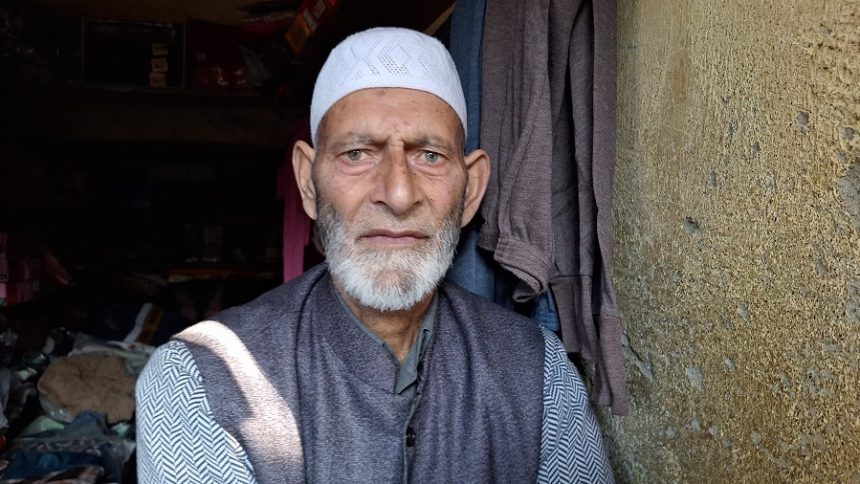Handwara, Oct 21: In the busy streets of Handwara, 62-year-old Abdul Gani Shah of Batpora, Langate can still feel the presence of his daughter, Tabinda Gani, who was brutally raped and murdered in 2007.It’s been 17 years, but Shah’s grief is as fresh as the day he lost her. He vividly remembers the last moments he spent with her, holding onto those memories as he fights for justice.
Speaking to Rising Kashmir, Shah, who runs a children’s clothing shop in Handwara, expressed his shock and despair over the recent court ruling.The High Court of Jammu Kashmir and Ladakh reversed the death penalty given to the four accused men, sentencing them to life imprisonment instead. For Shah and his family, this decision came as a severe blow, one they are struggling to accept.
“I have been waiting for justice for so long,” Shah said, his voice heavy with emotion. “I have faced countless problems fighting this case. I was promised that the culprits would be hanged for what they did to my daughter. But now, it feels like we have been abandoned.”
Shah’s daughter, Tabinda Gani, was just 13 years old when she was brutally raped and murdered in the orchards of Batpora, Langate.Her death shocked the entire Kashmir Valley, leading to widespread protests and demands for justice. The crime was so horrific that it left deep scars on the local community, and the family has been fighting for justice ever since.
Briefcase history
On 20, July 2007, Tabinda was kidnapped while on her way home from school. She was taken to an isolated area, where she was raped and then murdered. The police quickly arrested four men in connection with the crime.The accused were identified as Sadiq Mir alias (Sada choor) and Azhar Mir alias (Billa) , both residents of Langate, along with two non-locals, namely Suresh Kumar and Jahangir Ansari.
The case was tried in court, and in 2015, the District and Sessions Court in Kupwara sentenced all four accused to death, calling their crime heinous and deserving of the highest punishment.The court’s decision was welcomed by Tabinda’s family and many in the Valley, who believed justice had been served.
However, in a recent development, the High Court of Jammu and Kashmir commuted the death sentence to life imprisonment. The court cited legal precedents and arguments by the defence to justify reducing the sentences. For Abdul Gani Shah, this decision was a bitter pill to swallow.
“I can’t believe this is happening,” Shah said, his eyes filled with tears. “My daughter was just a child. Those men didn’t just take her life, they destroyed our entire family. How can their punishment be reduced? How is that justice?”
Father’s struggle for justice
For the past 17 years, Shah has been tireless in his pursuit of justice. He has attended court hearings, spoken to lawyers, and appealed to government officials, hoping for closure. Each time he felt that the end was near, a new twist in the case dashed his hopes.
“I am 62 years old now. I don’t know how much longer I can keep fighting,” Shah admitted. “But I will not give up. I owe this to my daughter. I will take this case to the Supreme Court if I have to.”Shah also shared that one of the accused, Sadiq Mir, had been involved in many crimes before Tabinda’s murder. “If the government had acted earlier and taken strict action against him, my daughter might still be alive today,” Shah said, his voice trembling with emotion. “I don’t want this to happen to anyone else.”
Despite the recent court ruling, Shah remains determined to continue his fight. He plans to request a double bench of the High Court to reconsider the death penalty for the four accused.If the High Court does not restore the original sentence, Shah is prepared to take the case to the Supreme Court of India.
“I was assured that these men would be hanged to death. That’s what justice looks like to me,” Shah said. “They did something unforgivable. Life imprisonment is not enough.”He also appealed to the current government, hoping they would intervene and bring back the original verdict. “I have suffered enough. My family has suffered enough. I am not asking for anything extraordinary, just the justice that was promised to us,” Shah said.








